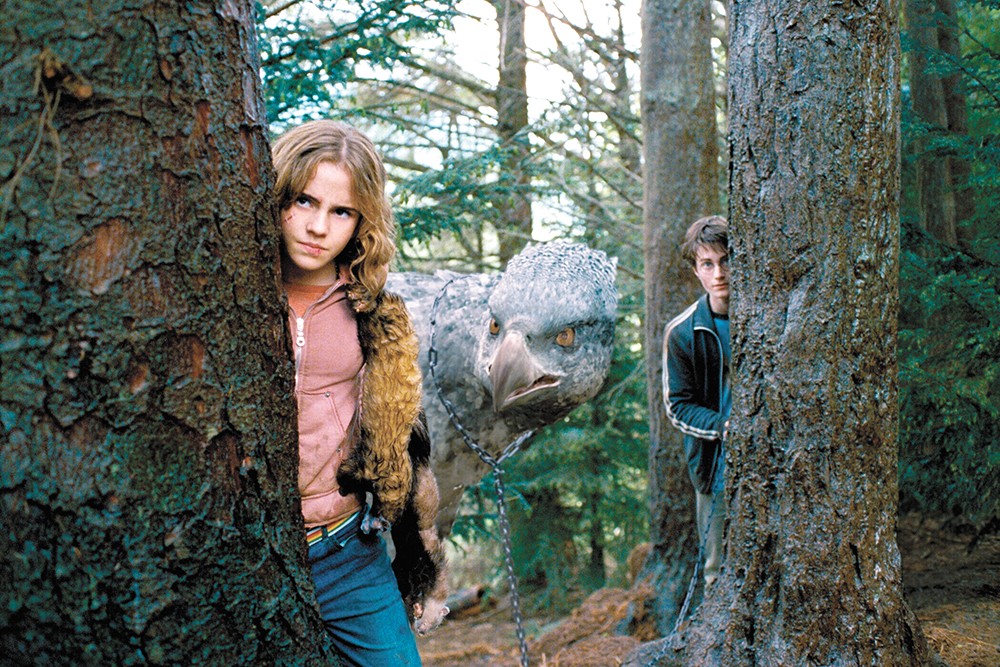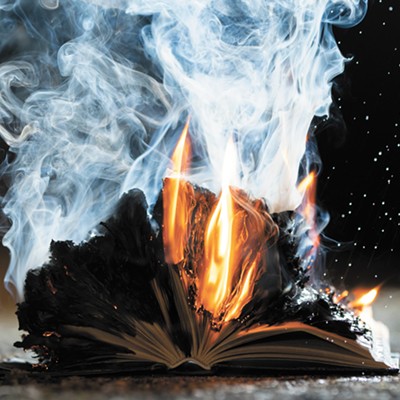For the better part of the seven elapsed years since the release of the eighth and final installment in the film franchise centered on the Boy Who Lived, I have not been thinking about Harry Potter. Obviously, the franchise still has plenty of ardent followers — the ones who are lining up for the midnight premiere of Fantastic Beasts: The Crimes of Grindelwald. Not I. I'll always hold Rowling's witches and wizards near and dear to my heart. My life, however, moved on, and I didn't remain closely attentive to Rowling's ever-evolving magical universe once the core book and film franchises had ended.
And yet here I am, seven years on, thinking about Harry Potter again. My latest mental jaunt into the world of witchcraft and wizardry comes thanks to a pair of spontaneous group viewings of random films from the franchise — one a connective tissue, the other a singular, striking fantasy film — after which I found myself finally able to articulate just why one of them outclasses the rest of the pack.
Ah, Harry, your magic continually recaptures those bold enough to think they've moved on.
Watching the franchise's sixth entry, Harry Potter and the Half-Blood Prince, for the first time since it came out in 2009 was an emotional ride. However, probably more than any other film in the franchise, Half-Blood Prince is a connecting chapter, and is in no sense a compelling standalone product.
The same cannot be said for the third installment, Harry Potter and the Prisoner of Azkaban, directed by future Oscar winner Alfonso Cuarón (Children of Men, Gravity).
The film opens with one of the more whimsical, emotionally charged childhood runaway sequences in film history, wherein Harry's repressed anger sends his inflated Aunt Marge billowing through the skies of Little Whinging. Later, when Harry himself takes flight over the lakes surrounding Hogwarts on the back of Buckbeak the Hippogriff, it's tough not to be swept away by the magical joy of the moment. Harry's brief, complete escape from the dark forces that so frequently suffocate his day-to-day existence is visually enamoring and immersive.
Cuarón's talent as a visual filmmaker is evidenced by the icily effective Dementor sequences, panache that's in the service of the film's exploration of fear. The suggestion that fear is best conquered not by trivializing the feeling but by refusing its domination on the strength of other, equally complicated emotions is depicted on-screen with tense, ultimately cheer-inducing elegance.
Meanwhile, Hermione steps forward to provide the support of a true friend in the face of Harry's terrifying, world-shattering revelations, literally — in a particularly brilliant sequence — relieving Harry of the perceived invisibility that accompanies the hopelessness of his grief. This is powerful stuff, and its effectiveness lies not with past or future events, but with the story transpiring entirely within the bounds of Azkaban.
Sure, there are plenty of connections to what has come before and what is still to come in the story. Take, for instance, the decidedly testy behavior of Severus Snape during the film, a detail which could easily fly over the head of a casual viewer. However, the tidbit carries deep implications regarding Snape's past, which come into serious play in later installments but which are treated as winks to attentive fans by the coy Cuarón.
Without the intervention of the visionary director, Harry Potter would still have gone down in history as a film franchise that captured the love of an entire generation for more than a decade, which is itself no small feat. This is perhaps thanks to dispersed bits of the cleverly analogized, emotionally affecting thematic concerns with which the third installment bursts at the seams. But thanks to Cuarón, the series gave birth to a truly great film by any cinematic standards.
All of us childhood Potter acolytes can rest easy knowing that Harry is safely ingrained in the annals of muggle history. ♦





















